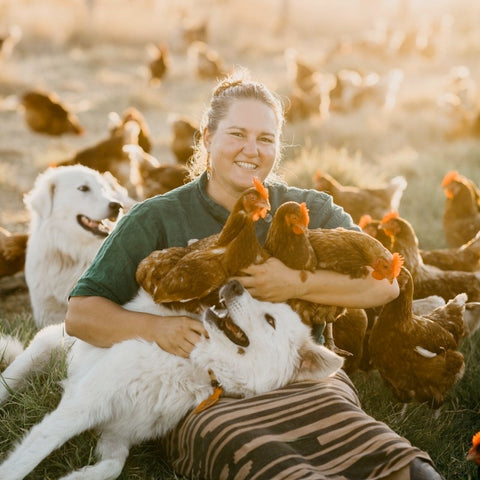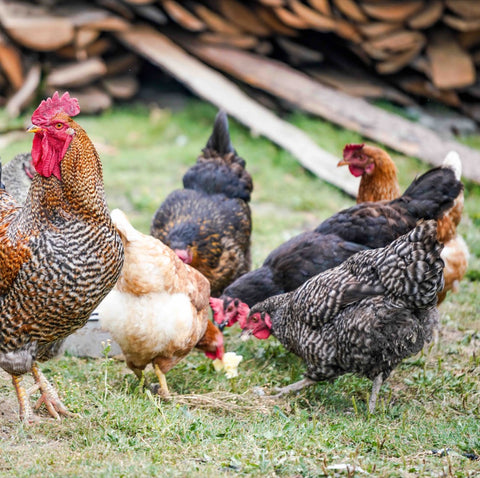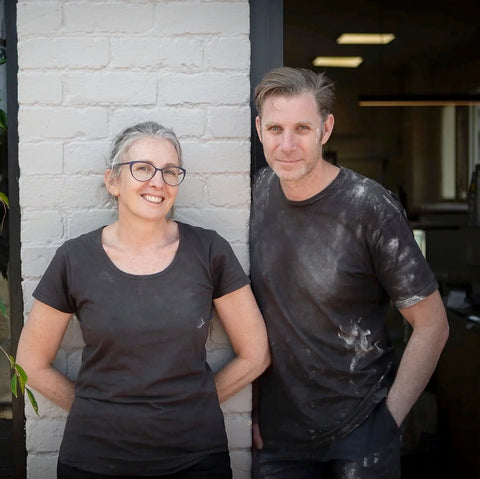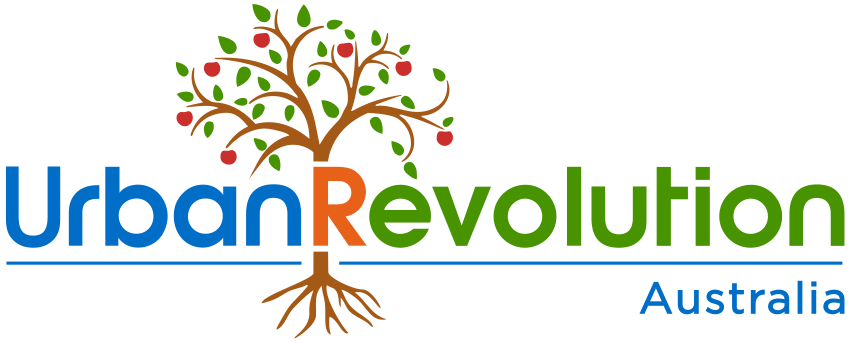The Urban Revolution team all gathered at Perth City Farm for their first Regenerative Agriculture Forum.
We heard that WA is really pioneering this space and taking great strides towards more sustainable farming practices. The excellent work of pioneering WA businesses like Dirty Clean Food is bringing the human story of the 'regen' farmers to the public and generating growing interest in the sector.
Runnymede Farm
Blythe Calnan spoke about her passion for regenerative agriculture practices and shared the story of her farm which is located near Harvey in the South West of WA. Inspired by stories of people regenerating environments while running profitable agricultural enterprises, Blythe and husband Gregg started to build a beef herd, and then branched into pastured eggs. With 500 acres of pasture, they rotate the chickens and the cattle through the land. The chickens spread the cow manure and eat the bugs and the chicken poo fertilises the grass. When the chickens move on, the area rests for at least six weeks, allowing the pasture to regenerate for the cattle.

Blythe sells her pastured eggs through farmers markets and also via Dirty Clean Food to rave reviews! Their chooks have access to fresh vegetation and greenery that gives the yolks a strong colour and richness. They use irrigation which allows the grass to remain over summer, stabilising the colour year-round. No artificial light is used to stimulate laying and eggs are collected daily and sold weekly so the freshness is exceptional.
What is the difference between free range and pastured eggs?
Pasture raised eggs refers to a type of free range production that emphasises lower stocking densities and rotational grazing so there is always ground cover and grazeable plant species for the hens. Australia's free range egg laws require hens to have "meaningful and regular access" to an outdoor range during daylight hours and be free to roam and forage outside. The maximum outdoor stocking density for free range hens by law is one hen per square metre, or 10,000 hens per hectare. Pasture raised hens usually have a lower stocking density but the definition of 'pasture raised' is not legally defined.

Miller and Baker
Mark Taylor spoke about how he was inspired to start his family owned Northbridge bakery after living in Copenhagen and travelling through Europe. He wanted to focus on baked goods produced using freshly milled flour from local, sustainably grown grain. Mark was fortunate to find a WA supplier of pesticide-free grain which he mills into exceptional stoneground flour in house. His grain is sourced from Ian and Di Haggerty who are pioneers of regenerative farming in the Wheatbelt. Their mission is to produce food which is nutrient dense by improving soil health which in turn increases soil carbon and maximises water use. Mark shares this mission - by using the stoneground method his flour retains key nutrients and high levels of prebiotic fibres for optimal gut health.

Regen WA

We also heard about the work of Regen WA, which is a membership organisation that connects like minded individuals to grow knowledge and understanding around regenerative farming practices. RegenWA helps to encourage and support farmers to transition from their conventional, traditional farming practices to adopt some of the leading sustainability practices.
RegenWA is a network of committed West Australian farmers and industry stakeholders who are identifying, implementing and sharing innovative land management practices that other farmers can adopt. These forward thinking farmers want to be good stewards of the land and are focused on improving soil health and biodiversity to enhance the long term viability of their farm. Regenerative Agriculture is sometimes known as Carbon farming, because it is very effective at drawing down atmospheric carbon via plant photosynthesis and sequestering this carbon into our soils.
Thank you to Perth City Farm for hosting this event and the amazing guest speakers from Runnymede Farm, Miller and Baker and Regen WA for inspiring us all and giving us hope for a brighter future for food and farming.






Leave a comment (all fields required)